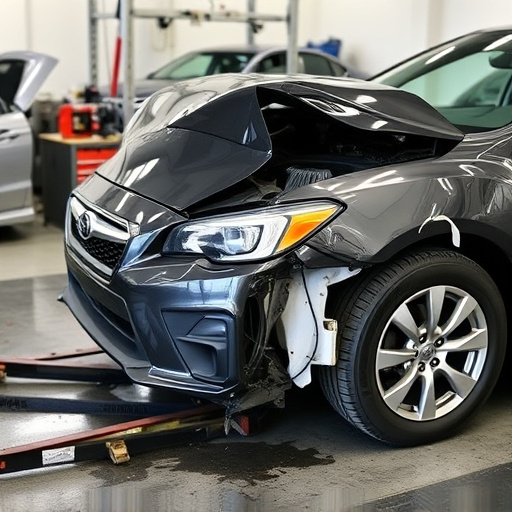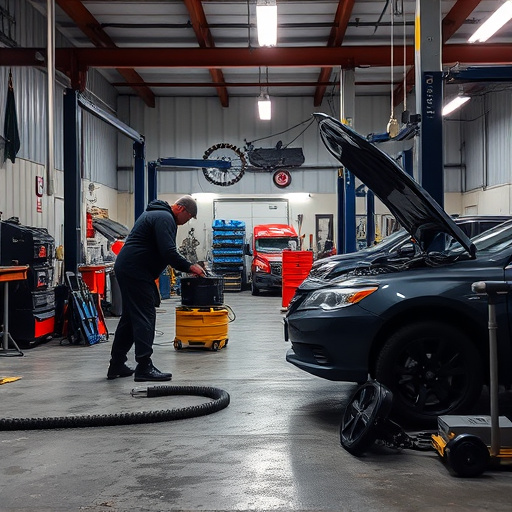Sustainable Core Support Replacement: Minimizing Environmental Impact

Core support replacement (CSR) in automotive restoration faces technical and environmental challenge…….
Welcome to an in-depth exploration of a groundbreaking concept—Core Support Replacement (CSR). This article aims to guide you through the intricacies of CSR, offering valuable insights into its significance, global impact, and future potential. In today’s rapidly evolving world, understanding and adopting innovative solutions like CSR is essential for businesses, policymakers, and researchers alike. We will dissect this topic, providing a comprehensive overview that leaves no stone unturned.
Core Support Replacement, at its core (no pun intended), involves the strategic replacement or enhancement of fundamental systems or components within an organization or infrastructure to improve efficiency, reliability, and adaptability. CSR targets the ‘core’—the critical elements that underpin a process, system, or product—and aims to modernise and optimise them. This could involve transitioning from manual to automated processes, replacing outdated technology with advanced solutions, or restructuring support systems to cater to evolving demands.
The key components of CSR typically include:
The concept of CSR has evolved over time, driven by technological advancements and shifting business landscapes. Historically, organizations often relied on legacy systems and manual processes due to limited technological capabilities. However, as technology advanced, especially in the late 20th century, the need for more efficient and adaptable core support systems became evident. The early 21st century saw a surge in digital transformation, with organizations embracing automation, cloud computing, and data analytics to enhance their core operations.
Core Support Replacement is not confined to specific regions; its impact is felt worldwide. Different countries have embraced CSR at varying rates, influenced by factors such as economic development, technological infrastructure, and government policies. Developed nations, with more established digital ecosystems, have led the way in implementing CSR across sectors like healthcare, finance, and manufacturing.
The global Core Support Replacement market has experienced steady growth, driven by the increasing demand for digital transformation and operational efficiency. According to a recent report by Grand View Research, the market size was valued at USD 273.9 billion in 2021 and is expected to expand at a compound annual growth rate (CAGR) of 12.5% from 2022 to 2030. This growth is attributed to rising investment in IT infrastructure, the need for data-driven decision-making, and the push for process automation.
Investors recognize the potential of CSR as a catalyst for economic growth and digital innovation. Venture capital firms and corporate investors alike are directing substantial funds towards startups and established companies offering cutting-edge CSR solutions. Areas of focus include cloud computing, AI development, cybersecurity, and industrial automation. Governments also play a role through public-private partnerships, providing financial incentives for adopting advanced core support systems.
CSR is integral to modern economic systems, as it enables businesses to:
The cloud has emerged as a cornerstone of modern CSR, offering scalable, flexible, and cost-effective solutions. Cloud migration enables organizations to replace on-premise servers and data centers with remote infrastructure, simplifying system management and enhancing data accessibility. Major cloud providers like AWS, Microsoft Azure, and Google Cloud Platform provide a suite of services catering to various core support needs.
AI and ML are revolutionizing CSR by enabling automated decision-making, predictive analytics, and intelligent process automation. These technologies can analyze vast amounts of data, identify patterns, and optimize processes, leading to improved operational efficiency and enhanced customer experiences. For instance, AI-powered chatbots enhance customer support, while machine learning algorithms can predict equipment failures in manufacturing, reducing downtime.
The IoT is transforming core support by connecting devices, sensors, and machines to the internet, enabling real-time data exchange and remote monitoring. This technology is particularly impactful in industries like healthcare (remote patient monitoring), smart cities (efficient energy management), and supply chain logistics (tracking and traceability). The integration of IoT with other technologies like AI creates powerful solutions for predictive maintenance and intelligent inventory management.
As digital transformation advances, so does the need for robust cybersecurity measures. CSR incorporates advanced security systems to protect core data and infrastructure from cyber threats. This includes encryption technologies, threat detection software, and incident response plans. With the increasing frequency and sophistication of cyberattacks, investing in cybersecurity is essential for maintaining operational continuity and protecting sensitive information.
The development and adoption of CSR are influenced by various policies and regulations that vary across jurisdictions. Governments play a crucial role in creating enabling environments that foster innovation while ensuring data privacy, cybersecurity, and ethical practices. Regulatory frameworks provide guidelines for:
Governments often provide incentives to encourage businesses to adopt advanced core support systems. These may include tax breaks, subsidies, or grants for research and development in digital technologies. Additionally, public-private partnerships facilitate knowledge sharing and collaboration on CSR projects, accelerating innovation and adoption.
Despite its numerous benefits, CSR faces several challenges:
To address these challenges:
A major healthcare provider in the United States embarked on a CSR project to modernize its record-keeping system by implementing a comprehensive EHR platform. The old system, based on paper records and outdated software, struggled to keep up with patient data growth and regulatory requirements. By replacing it with a cloud-based EHR solution, the organization achieved:
A global manufacturing giant aimed to increase operational efficiency and reduce downtime in its production facilities. By deploying an IIoT solution, the company connected various machines and sensors, enabling:
A leading bank in Europe launched a CSR initiative to digitize its core banking operations, aiming to enhance customer experience and operational efficiency. The project involved:
The future of CSR is filled with exciting possibilities:
For organizations embracing CSR:
Core Support Replacement is not merely a technological upgrade; it is a catalyst for innovation, efficiency, and growth across sectors worldwide. As we navigate the digital age, adopting CSR becomes increasingly vital for businesses and societies to stay competitive, adaptable, and resilient. The examples presented in this article illustrate the transformative power of CSR, offering valuable lessons learned from successful implementations.
Looking ahead, the future prospects for CSR are promising, with emerging technologies poised to further revolutionize core systems. By embracing these advancements and addressing the challenges, organizations can unlock new levels of productivity, enhance customer experiences, and contribute to a more sustainable and connected world. The journey towards digital transformation is ongoing, and those who lead in CSR will shape the future of industries for years to come.
Q: What are the key benefits of adopting Core Support Replacement?
A: CSR offers numerous advantages, including improved operational efficiency, enhanced data-driven decision-making, better customer experiences, and increased competitiveness in the market. It also enables organizations to stay ahead of technological advancements and adapt to changing business landscapes.
Q: How does CSR impact employment and skill sets?
A: While CSR may lead to concerns about job displacement due to automation, it also creates new job opportunities in fields like data science, software development, and cybersecurity. The skills gap is a challenge, but investments in training and education can help bridge this gap and equip workers with the necessary competencies for the future workforce.
Q: What are some common challenges faced during CSR implementation?
A: Challenges include financial constraints, skills gaps, data migration complexities, regulatory compliance, and resistance to change from employees. Effective planning, skill development initiatives, phased implementation, and strong governance can help overcome these hurdles.
Q: How does CSR contribute to sustainable development goals?
A: CSR technologies can play a significant role in achieving the United Nations Sustainable Development Goals (SDGs). For example, IoT sensors for environmental monitoring (SDG 13), AI-driven energy management systems (SDG 7), and efficient logistics solutions (SDG 9) all contribute to more sustainable practices.
Q: What is the role of government in promoting CSR?
A: Governments facilitate CSR adoption through policy frameworks, incentives, public-private partnerships, and regulatory oversight. They create an enabling environment, provide resources for training and research, and ensure fair competition while protecting consumer interests and data privacy.

Core support replacement (CSR) in automotive restoration faces technical and environmental challenge…….

Core support replacement requires meticulous attention to dependencies and data migration management…….

Core support replacement demands meticulous preparation and execution to maintain vehicle stability…….

Identifying a reputable automotive body shop for core support replacement is crucial for vehicle saf…….

Core Support Replacement Specialists play a vital role in automotive service, ensuring vehicle safet…….

Core Support Replacement (CSR) is a vital automotive maintenance process focusing on structural inte…….

Core Support Replacement (CSR) is a critical collision repair process, ensuring structural integrity…….

Assessing core issues is vital for successful core support replacement. Auto pros use advanced tools…….

Core support replacement is a critical vehicle repair process ensuring structural integrity and safe…….

A rigorous Core Skills Assessment ensures technicians are competent in core support replacement task…….